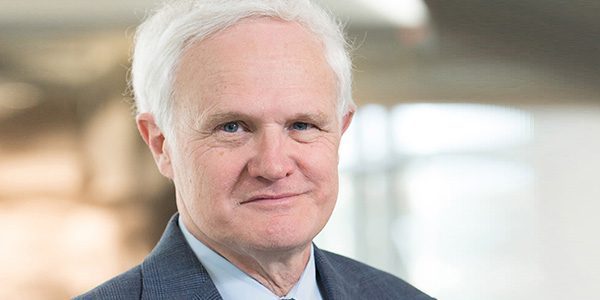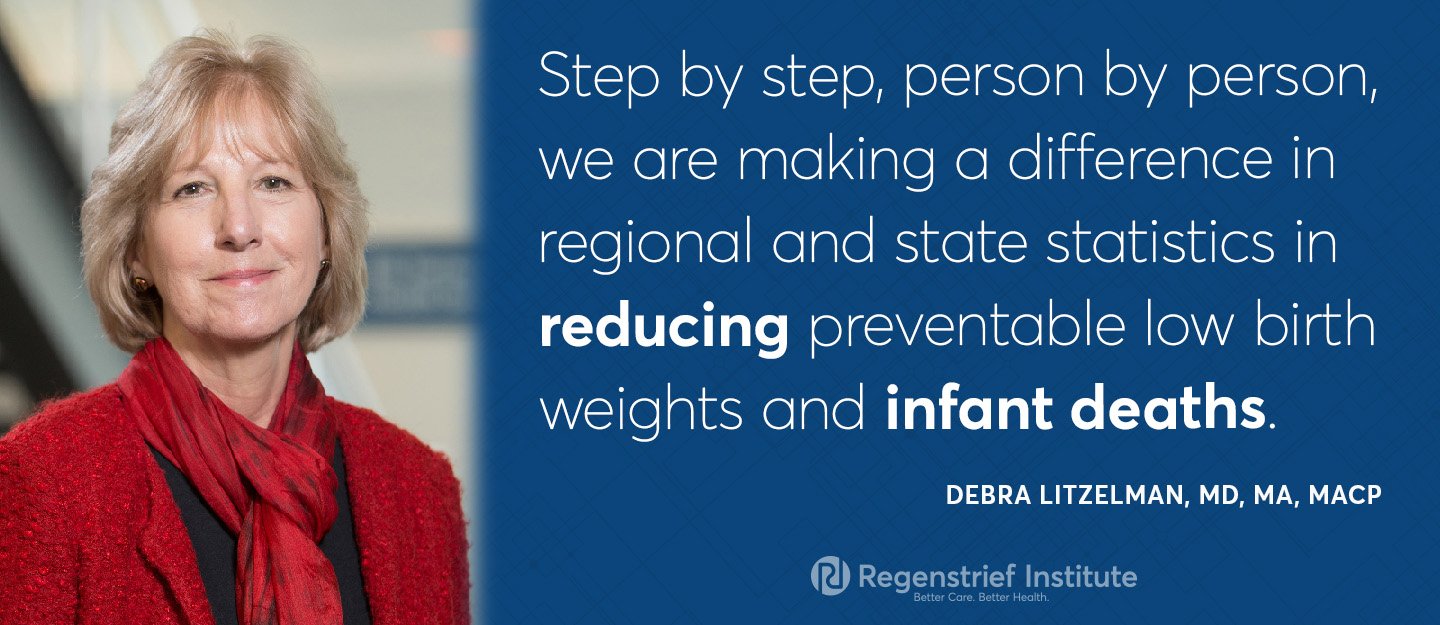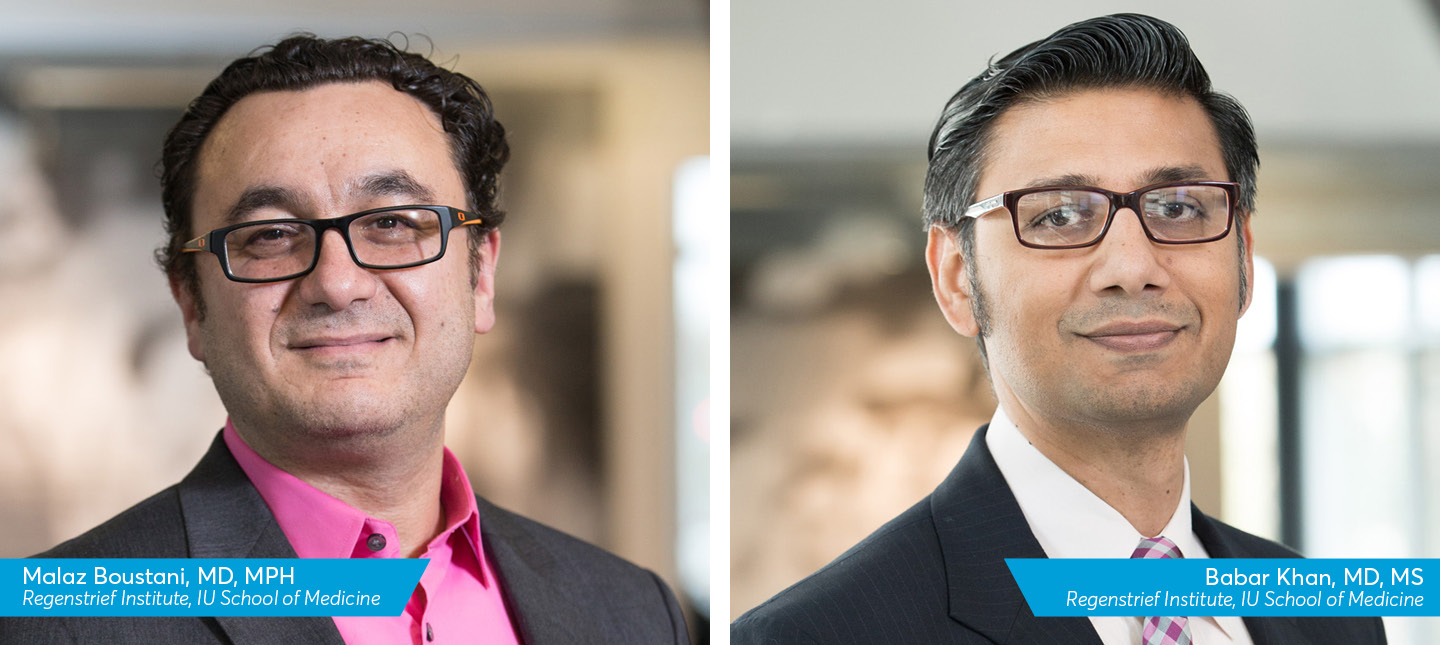Regenstrief and IU programs use community health workers to reach at-risk mothers
The infant mortality rate in Indiana fell to its lowest level in state-recorded history. The WeCare and CARE programs led by Regenstrief Institute research scientist and Indiana University School of Medicine professor Debra Litzelman, M.D., M.A., played an important role in improving that statistic.
The infant mortality rate is the number of children who die before their first birthday. It is an important indicator of a community’s health. Preliminary data released by the Indiana State Department of Health shows the statewide infant mortality rate fell from 6.8 per 1,000 live births in 2018 to 6.5 in 2019. In the Central region where Dr. Litzelman’s team is working, infant mortality decreased from 7.0 in 2018 to 6.4 in 2019.
The WeCare program works to address issues that lead to infant mortality. Through the programs, community health workers build relationships with pregnant and postpartum women in 13 high-risk zip codes for infant mortality in Marion and surrounding counties. These women face struggles with some of life’s most basic needs, such as food, clothing and housing, in addition to the challenges of pregnancy and raising a child. The community health workers, known as coaches, are specially trained to assist these women with the many obstacles they face. WeCare is also a part of the State’s My Healthy Baby program, which is an obstetrician-gynecologist navigator program that connects women with services they need.
Coaches connect women with health resources, whether it’s access to food, substance use disorder treatment options, or help finding a place to live. They also educate mothers on the importance of safe sleep practices, breastfeeding and address maternal health risk factors for infant mortality such as smoking and nutrition. The coaches offer emotional support through the relationships they establish with the women.
The CARE program, which specifically works with pregnant and postpartum women living with substance use disorder, is funded by grants from the Indiana University Addictions Grand Challenge and the Richard M. Fairbanks Foundation. Specially trained coaches, called Addiction Recovery Coaches, provide all the WeCare services plus support and assistance connecting women with substance use disorder treatment options.
“In large part due to the incredible care and services provided by the WeCARE and CARE coaches, we have demonstrated measurable improvements in reducing risk factors for infant mortality for both the mothers and their children,” said Dr. Litzelman, associate director of the Regenstrief Institute Center for Health Services Research and a professor of global health education at IU Center for Global Health. “Our efforts and the efforts of many others from around the state are slowly adding up. Step by step, person by person, we are making a difference in regional and state statistics in reducing preventable low birth weights and infant deaths.”
The WeCare program was established through a partnership between Regenstrief and IU School of Medicine. It is funded by IU Health, the State Department of Health, the Indiana Clinical and Translational Sciences Institute (CTSI), the IU Center for Global Health, and the Indy Hunger Network. Community partners in the effort include Eskenazi Health, HealthNet and the Raphael Health Center.
Learn more about the CARE program in this episode of The Problem podcast, created by Regenstrief Institute.
About Regenstrief Institute
Founded in 1969 in Indianapolis, the Regenstrief Institute is a local, national and global leader dedicated to a world where better information empowers people to end disease and realize true health. A key research partner to Indiana University, Regenstrief and its research scientists are responsible for a growing number of major healthcare innovations and studies. Examples range from the development of global health information technology standards that enable the use and interoperability of electronic health records to improving patient-physician communications, to creating models of care that inform practice and improve the lives of patients around the globe.
Sam Regenstrief, a nationally successful entrepreneur from Connersville, Indiana, founded the institute with the goal of making healthcare more efficient and accessible for everyone. His vision continues to guide the institute’s research mission.
About IU School of Medicine
IU School of Medicine is the largest medical school in the U.S. and is annually ranked among the top medical schools in the nation by U.S. News & World Report. The school offers high-quality medical education, access to leading medical research and rich campus life in nine Indiana cities, including rural and urban locations consistently recognized for livability.
About Debra Litzelman, M.D., M.A.
Debra Litzelman, M.D., M.A., is associate director of the Regenstrief Institute William M. Tierney Center for Health Services Research. She is also the D. Craig Brater Professor of Global Health Education at Indiana University School of Medicine and the director of education for the Indiana University Center for Global Health.










